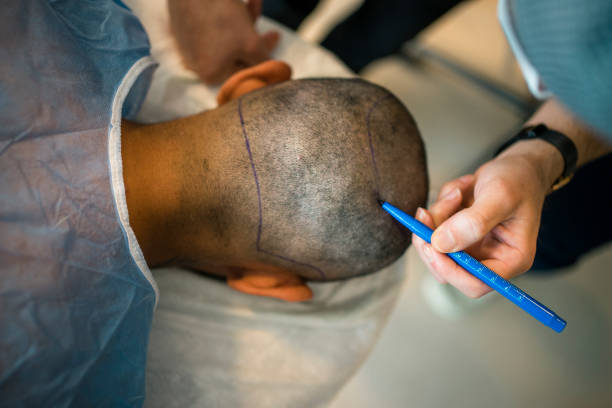A Hair transplant Denver Can Provide You With Permanent, Natural Looking Results

One major development has made it possible to obtain natural-looking results.
The majority of surgeons only transplant healthy hair one at a time. This
eliminates the doll-like, natural hairstyles that patients used experience in
the 70s/80s. Hair plugs, which were tiny hair pieces put in the areas that was
thin, were popular at the time. Hair plugs became noticeable over time.
Improvements in creating the hairline and putting the hairs on the thin areas
also help create natural-looking results.
These advancements allow results that look so natural that stylists and
barbers can't tell that you have completed any work.
The surgeon you choose will have a significant impact on your results.
While these advances provide patients with natural-looking results, the
outcome still depends largely on the surgeon you choose. It is important to find
a hair specialist who has experience with hair loss and hair
transplants.
Dermatologists are experts in the treatment of conditions that affect our
skin, hair and nails, so they have a vast knowledge of hair loss. Many can also
perform hair transplants and inform you if you're an appropriate candidate for
hair restoration doctor.
Who is a good candidate to have a hair transplant done?
All races are eligible for hair transplants.
Two conditions must be met to be eligible for a hair transplant:
Hair that is healthy and strong on your scalp that can be transferred to the
area which requires hair
The ability to grow hair in the thinning areas of your scalp
In a visit with a dermatologist, you can discover if you're suffering from
both. A dermatologist will conduct a thorough scalp exam.
To find out why you're losing your hair it is possible to have an examination
of your blood. It will help you determine what is that are happening within your
body that could be causing your hair loss. Certain patients require a procedure
called scalp biopsy. During your appointment your dermatologist will swiftly
collect the scalp biopsy information.
If your test and exam prove that you're the right candidate for hair
transplant, your dermatologist can give you an estimate of the results to
anticipate. The idea of having a full head could be a stretch, but a fuller head
of hair can be the desired outcome.
What happens when you have a hair transplant?
You can expect a hair transplant to take between four to eight hours. If
you're getting many hairs transplanted, you may be required to come back for
some time the following day.
Most patients remain awake during the entire surgery and need just an
anesthesia to make the scalp numb. To aid in relaxing, some patients may require
some mild sedative.
The procedure begins by having your dermatologist taking out healthy hairs.
For natural-looking results the dermatologist can remove healthy hairs either
cutting a strip of skin with healthy hairs from your scalp or by removing
individual hairs.
The other option requires longer, but avoids leaving a large, thin scar on
your scalp. This option is ideal when you like close-shaven cuts such as buzz
cuts.
Technicians need to prepare the hairs to be transplanted prior to the surgeon
being able to perform the procedure.
A minimum of two to three members of hair restoration Doctor according to how
many hairs need to be transplanted, can help to ensure that healthy hairs are
placed in the desired area. When all hairs have been transplanted, your scalp
will be bandaged and you will be provided with instructions for at-home
care.
What happens to patients when they see the outcomes from hair
transplants?
The majority of patients see results within six to nine months. Some patients
might require 12 months.
It's important to know that in the two to eight weeks following the procedure
the hair transplanted will begin to fall out. This is normal. After the third
month, your hair could appear thinner than it did prior to the transplant. It's
normal.
Medicine can help you keep the effects
The dermatologist may prescribe medication to treat hair loss for best
outcomes. Medicine helps because the loss of hair and thinning may continue,
even after a hair transplant.
The use of medication can help slow down or stop hair loss. In this way you can maintain your natural-looking results for the years to be.
Kommentit
Lähetä kommentti